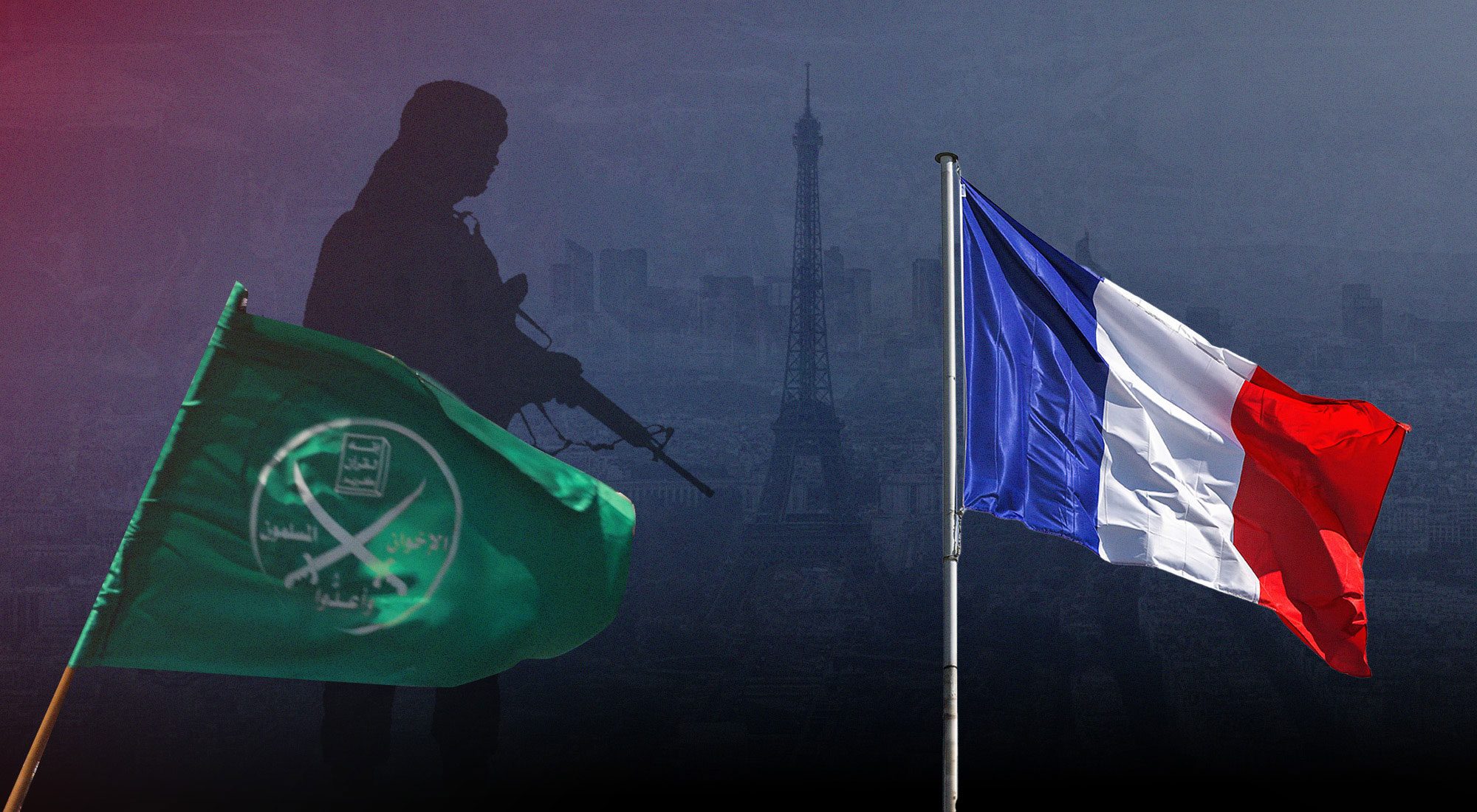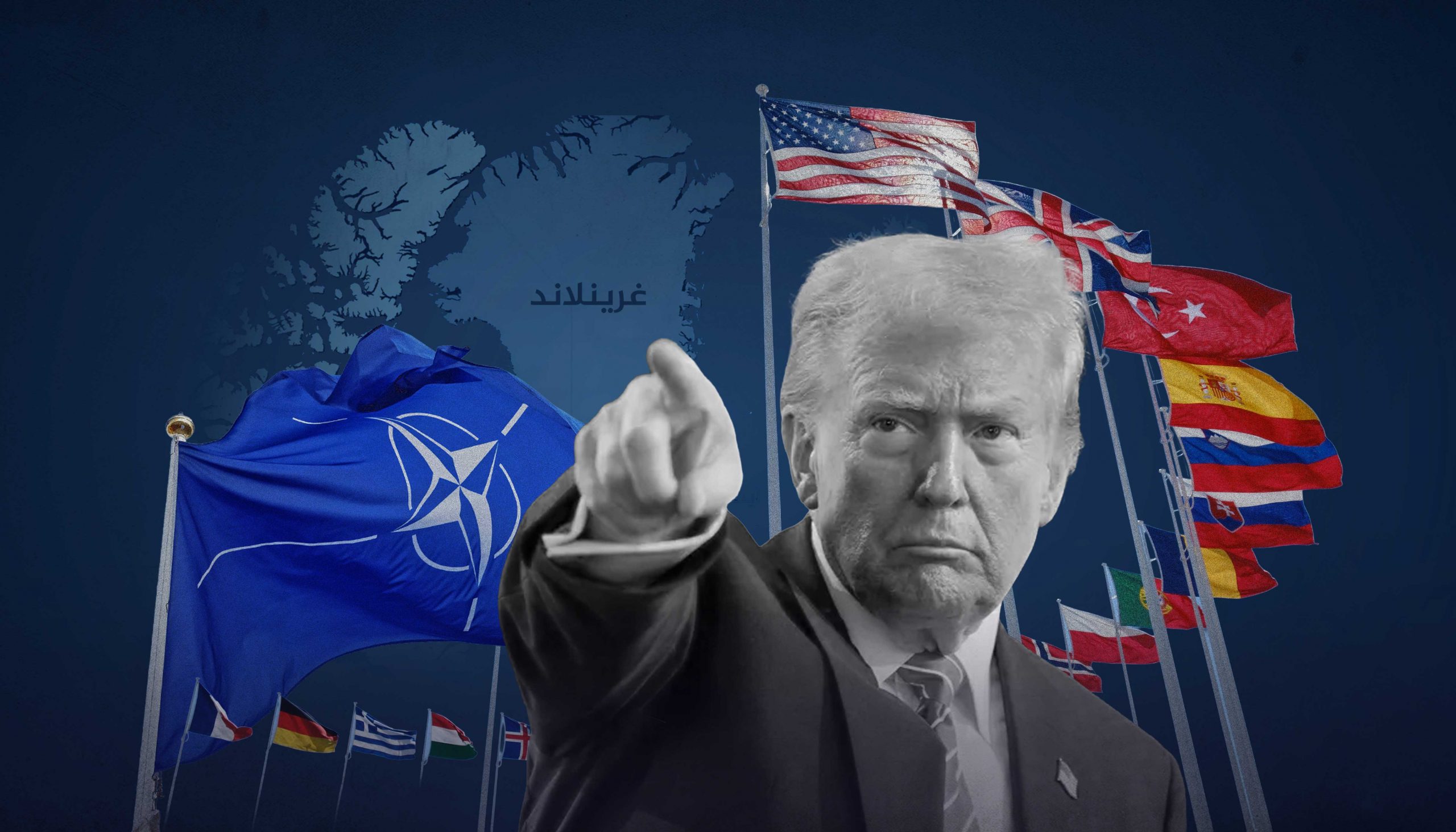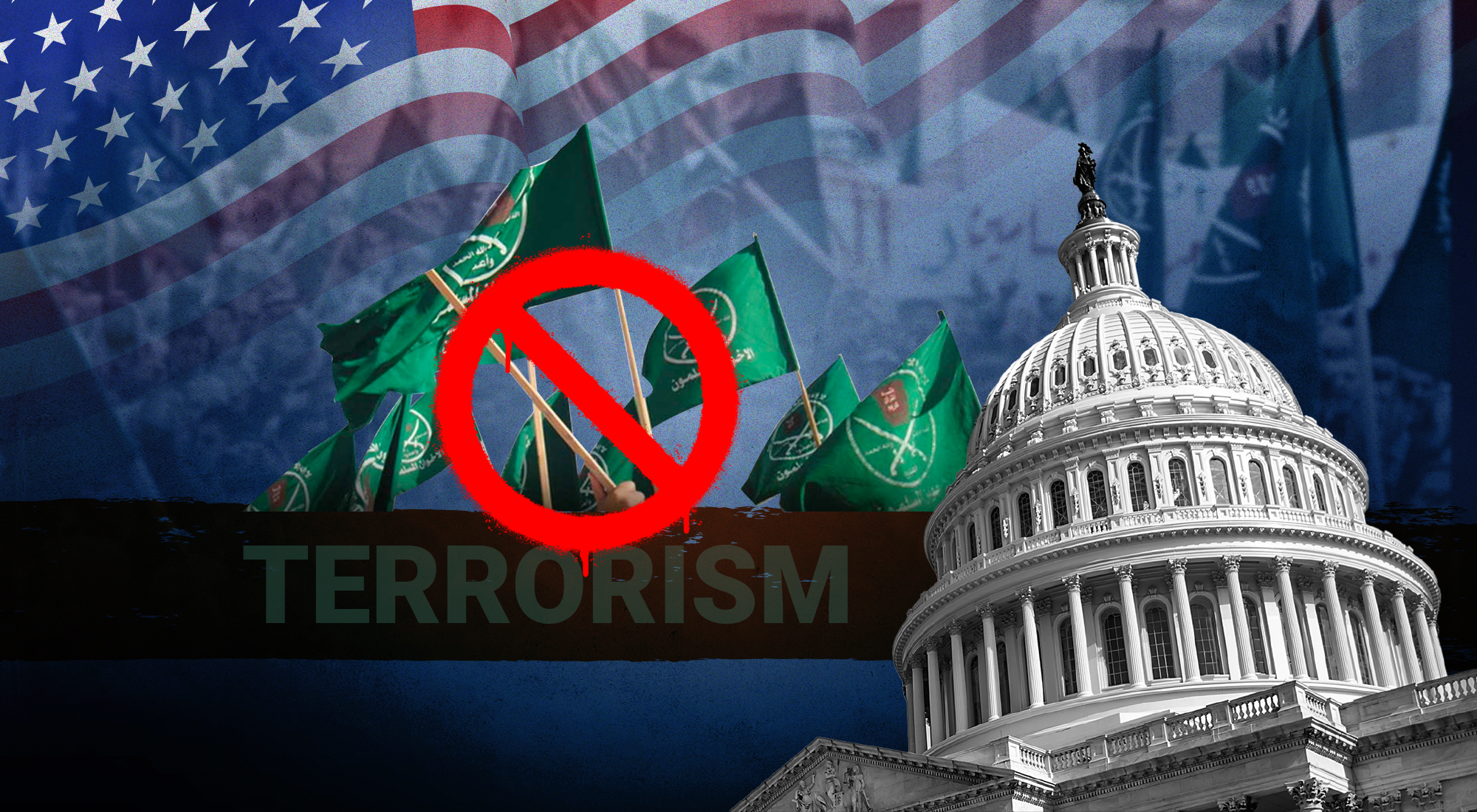In May 2025, a declassified French government report titled “The Muslim Brotherhood and Political Islam in France” stirred national debate following its exclusive release by Le Figaro. Commissioned by Interior Minister Bruno Retailleau and compiled by a prefect and an ambassador, the 73-page document presents a detailed investigation into the presence, influence, and long-term strategy of the Muslim Brotherhood across French territory. Drawing on intelligence sources, field visits, and interviews with religious leaders and academics, the report explores how the Brotherhood seeks to reshape segments of French society through networks of mosques, schools, associations, and digital platforms.
The primary aim of the original report is to assess the ideological and organizational reach of the Muslim Brotherhood in France, particularly its use of religious legitimacy, foreign funding, and institutional partnerships to establish what the authors describe as “parallel Islamic ecosystems.” These efforts, the report warns, risk undermining the values of the French Republic by promoting separatism, subversion, and long-term ideological shifts incompatible with secularism.
This report matters not only because of the Brotherhood’s historical ties to political Islam but also because it signals a broader anxiety in France about integration, identity, and national cohesion. At a time when religious affiliation and civic belonging are increasingly politicized, the French state finds itself grappling with the complex challenge of addressing non-violent ideological movements that operate within legal boundaries but raise profound questions about long-term social harmony and national values.
This study offers a thematic summary of the report’s key findings, focusing on the Muslim Brotherhood’s strategy, methods of influence, and associated risks. It also analyzes these findings within their broader political and social context, drawing on historical perspectives to consider the long-term implications of political Islam in France.
The Brotherhood’s Strategy in France: Historical Roots and Long-Term Project
Founded in 1928 by Hassan al-Banna in Egypt, the Muslim Brotherhood emerged in response to colonial rule and the perceived decline of Islamic values. From the outset, it positioned itself not only as a religious revivalist group but also as a movement for societal transformation through Sharia law. Al-Banna famously described the Muslim Brotherhood as “a huge hall into which any Muslim can enter through any door,” whether seeking spiritual guidance, political activism, or social services, reflecting a strategy of broad appeal with a singular ideological aim.
The group’s expansion into Europe began in the 1950s as members fled crackdowns in the Middle East. France, along with Belgium, Germany, and the United Kingdom, became key points of settlement and recruitment. Over time, Europe transitioned from being a place of exile to a strategic arena for ideological continuity. As the Muslim Brotherhood lost influence in the Arab world—due to state crackdowns and political shifts—it began investing in long-term structures across the European continent.
In France, this took organizational form with the creation of the Union of Islamic Organizations in France (UOIF) in the 1980s, led by figures like Ahmed Jaballah and Faycal Mawlawi, considered ideological emissaries of the movement. The Brotherhood’s long-term project is rooted in a dual structure: public-facing networks of schools, mosques, and associations, and a more discreet inner leadership shaping ideological direction.
This framework allows the movement to operate within legal norms while advancing a model of society that privileges divine law over secular republican values. With its Arab base weakening, the Brotherhood now views Europe—and France in particular—as central to its future ideological influence.
Main Axes of Influence
The French government identifies four main domains through which the Muslim Brotherhood builds its influence in France: religious infrastructure, education, digital media, and local community structures. These areas are treated as platforms for shaping religious identity, guiding social behavior, and reinforcing values that, in some cases, diverge from the norms of secular civic life.
Religious Infrastructure
One of the most firmly established foundations of the Brotherhood’s presence in France is its network of mosques. A total of 139 are formally affiliated with Musulmans de France, while 68 others are described as closely aligned. Together, they represent a well-organized structure present in over 55 departments across the country.
Although this number represents a relatively small portion of France’s total Muslim places of worship, the organization’s strategic depth is emphasized in the report. These mosques are not isolated or loosely affiliated; they operate under coordinated leadership and share a consistent ideological orientation. This cohesion increases their influence, particularly when messages, teachings, and programming are aligned with broader Brotherhood principles.
The financial dimension of this network adds another layer of concern. Several properties have been funded through endowment mechanisms or external donations originating from abroad. While not inherently illegal, the lack of transparency surrounding some funding flows has raised questions about external influence over domestic religious discourse.
Educational Institutions
The Brotherhood’s role in education is described as a long-term investment. Twenty-one schools have been identified as either affiliated with or sympathetic to the movement. These institutions educate over 4,000 students and serve as important spaces for transmitting religious and cultural values from a young age.
A key example is the Lycée Averroès in Lille, which has drawn scrutiny for its financial ties and for allowing religious materials that conflict with France’s republican values. Some content promotes gender segregation and the supremacy of divine law, suggesting that the schools function as more than just academic spaces. They are also tools for shaping a particular worldview, which becomes ingrained in the individual as they grow.
The issue is not simply religious instruction; it is the cultivation of a parallel value system that prioritizes religious identity and authority. This raises questions about how such environments affect civic belonging, especially when they are at odds with secular public education.
Digital Influence: “Preaching 2.0”
A growing area of influence identified in the report is the Brotherhood’s use of digital media, often described as “digital dawa.” Through platforms like YouTube, TikTok, and Instagram, online preachers and influencers with Brotherhood roots reach large French-speaking audiences, especially younger users who feel disconnected from traditional institutions.
Unlike formal religious preaching, this digital advocacy blends conservative Islamic values with personal development, identity politics, and critiques of mainstream society. The tone is accessible and informal, often framed around empowerment or community belonging rather than doctrine. This approach resonates with youth navigating social marginalization or cultural ambiguity, offering them a moral framework that feels both familiar and distinct.
What makes this form of preaching especially effective is its adaptability and reach. Content is algorithmically amplified, pulling users into cycles of increasingly aligned material. This creates echo chambers where conservative values such as gender separation, veiling, and skepticism toward secular norms are normalized without being explicitly politicized.
The decentralized, informal nature of digital dawa makes it difficult to monitor. Its influence lies not in formal declarations but in the gradual shaping of values and worldview. According to the report, this environment can quietly reinforce Muslim Brotherhood-aligned thinking, fostering ideological alignment under the radar of public scrutiny.
Community Ecosystems
The final area of focus is the development of local service networks rooted in religious community life. These ecosystems provide a wide range of services: religious guidance, educational support, financial advice, health outreach, and social activities. They are particularly concentrated in working-class neighborhoods with a high proportion of Muslim residents. By addressing everyday needs, these ecosystems build trust and legitimacy. However, they also become spaces where social norms are gradually influenced by religious expectations rather than civic standards. The report suggests that within these environments, practices such as increased veiling, gender-based separation, and religiously framed moral behavior are reinforced as the norm.
What distinguishes this model is its aim to manage the entirety of Muslim life—from birth to death. This level of coverage sets it apart from conventional religious associations that may focus on worship or occasional services. Here, the Brotherhood-linked structures seek to create a fully contained environment in which all life milestones, like education, marriage, employment, family matters, and even funerary services, are shaped through a religious lens. Beyond ideological influence, it results in the creation of an alternative social reality where the state becomes secondary, and communal religious authority assumes the dominant role.
This is not described as imposed segregation but as a slow process in which an alternative model of life becomes dominant in specific areas. These ecosystems do not explicitly reject the Republic, but they operate with their own internal logic, often separate from it.
Foreign Connections and Funding
The report identifies foreign funding as a critical enabler of the Brotherhood’s activities in France. Financial support has flowed into mosques, educational centers, and religious institutes—most notably the Institut Européen des Sciences Humaines (IESH)—through indirect channels such as endowment structures and real estate holdings. These funds have historically originated from outside France and align with a broader transnational strategy that includes religious training, lobbying efforts, and the development of parallel financial and educational networks. While the transactions themselves may fall within legal boundaries, the concern lies in how this funding contributes to long-term ideological influence and institution-building that extends beyond spiritual life.
The concern is less about the legality of funding than about its ideological alignment. Financial support often comes with expectations, whether stated or implied, about the kind of discourse promoted, the figures elevated, and the theological positions endorsed. In this sense, foreign-backed institutions can act as conduits for narratives and norms shaped by political contexts beyond France’s borders.
This creates a layered challenge for French authorities. On the surface, the institutions receiving funds operate within legal boundaries. But at a deeper level, their messaging, affiliations, and educational output may serve ideological goals that clash with the principles of national unity and secular governance. The report calls for greater vigilance and regulatory clarity, warning that influence does not require volume—it requires consistency and alignment across institutions that shape values and authority.
Political Strategy and Institutional Infiltration
The Brotherhood’s political strategy in France is characterized by restraint, legalism, and calculated positioning within official religious and civic structures. Rather than confronting the state directly, the movement favors working through recognized institutions and using established legal mechanisms to advance its goals. Its involvement in national religious bodies such as the French Council of the Muslim Faith (CFCM) reflects this approach. Participation in such platforms provides visibility, legitimacy, and a channel through which the Brotherhood can influence how Islam is represented at the institutional level.
At the same time, the movement maintains a degree of ideological insulation. It avoids overt declarations or provocations, instead emphasizing narratives centered on discrimination, exclusion, and Islamophobia. This framing is not just defensive; it serves as a political tool. By positioning itself as a victim of marginalization, the Brotherhood can deflect criticism, discredit state interventions, and rally broader support under the banner of religious freedom and minority rights.
This posture is reinforced through indirect collaboration with organizations focused on combating Islamophobia or promoting identity-based causes. While not always formally affiliated, these alliances allow the Muslim Brotherhood to amplify its messaging and extend its reach without exposing its core leadership or agenda. The report describes this as a tactical use of proximity: engaging with intersectional or activist networks on shared issues while remaining ideologically distinct.
Legal structures play a crucial role in protecting and advancing this strategy. Associations, educational entities, and community centers often operate as lawful fronts, providing services and conducting outreach that appear apolitical on the surface. However, these entities are frequently coordinated in ways that reflect deeper ideological coherence. The Brotherhood’s model relies on staying within the limits of legality while pursuing long-term societal transformation—one that redefines the relationship between religion, identity, and public life on its own terms.
State Concerns and Strategic Recommendations
The threat posed by the Muslim Brotherhood, as framed in the report, does not center on violence or direct incitement. Instead, it is described as a long-term ideological project that seeks to reshape social norms, civic behavior, and the role of religion in public life. The concern is not immediate radicalization, but the gradual normalization of alternative moral and legal frameworks that run parallel to, and at times in tension with, the values of the French Republic.
The report points to a creeping form of separatism, not declared but enacted through everyday practices. These include the promotion of conservative dress codes, gender-segregated spaces, and consumer habits aligned with religious authority, such as the expansion of halal-certified businesses. Such practices are not criminal, yet when embedded within coordinated networks, they can contribute to the emergence of social enclaves where civic norms are displaced by religious expectations.
Other than the Brotherhood’s capacity to influence, the risk is amplified by the state’s difficulty in recognizing and responding to this mode of ideological entrenchment. French institutions have traditionally focused on overt threats such as extremism, terrorism, and hate speech but are less equipped to address non-violent forms of strategic withdrawal from republican life. This creates what the report describes as political blind spots, where influence spreads under the radar of current legal and administrative frameworks.
In response, the report outlines a set of recommendations aimed at strengthening institutional awareness and improving oversight. Among them is the call to develop a clearer public understanding of political Islamism, not through inflammatory rhetoric but through accurate education and transparency. This includes more precise definitions of key concepts such as “separatism” and “subversive religiosity,” which remain vague and inconsistently applied.
It also recommends expanding the role of parliamentary oversight, particularly in relation to intelligence reporting on ideological movements. This would help ensure that long-term patterns of influence are not overlooked in favor of short-term threat assessments. In terms of regulation, the report urges closer monitoring of private religious schools, associations, and funding flows, particularly where ideological alignment appears consistent and coordinated.
Finally, it cautions against public tactics that may backfire, such as naming specific individuals or organizations without due process, which can reinforce narratives of victimhood and persecution. Instead, the approach favored is one of institutional resilience and strategic clarity, aimed at reinforcing civic integration without compromising legal freedoms.
Conclusion
The report portrays the Muslim Brotherhood as a structured and methodical force working to reshape segments of French society through long-term ideological influence and parallel networks. By embedding itself within legal institutions like schools, mosques, community centers, and digital spaces, the movement advances a model of society that subtly diverges from the secular and civic norms of the Republic.
Its real significance lies in how it reframes the challenge. Rather than focusing on overt confrontation, the report brings attention to the slow formation of alternative moral frameworks that operate within the law but risk creating lasting divides in civic life. This reflects a deeper concern with social fragmentation, ideological insulation, and the emergence of cultural enclaves where republican values may be sidelined.
Strategically, the report marks an important step in shifting France’s approach from reactive counter-extremism to anticipatory civic protection. By mapping the Muslim Brotherhood’s influence across multiple sectors, it enables policymakers to identify vulnerabilities not previously addressed by security frameworks. If used effectively, the report could help shape a more coherent strategy, one rooted in transparency, education, and institutional resilience.Ultimately, the debate it opens is not about religious practice but about the terms of integration and the kind of society France aspires to preserve.
References
Lorenzo Vidino, The New Muslim Brotherhood in the West, (Columbia University Press, 2010).
“Muslim Brotherhood movement poses ‘threat to national cohesion’, French govt report says” France 24, May 21, 2025, https://www.france24.com/en/france/20250521-muslim-brotherhood-movement-poses-threat-to-national-cohesion-french-govt-report-says.
“Réseaux tentaculaires, organisation secrète, quartiers islamisés… Le rapport choc sur les Frères musulmans qui veulent instaurer la charia en France,” Le Figaro, May 5, 2025,
Sénat Français, “Commission d’enquête sur l’influence des idéologies radicales,” Rapport n° 595 (2016-2017), https://www.senat.fr/rap/r19-595-1/r19-595-11.pdf.








